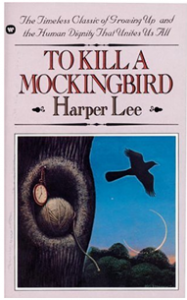
Lesson 11: Infinitives
In this section, we will be discussing infinitives, their definition and different uses.
Objectives:
- To define infinitives
- To discuss the proper way to use infinitives
- To use these verbs in sentences
In this lesson, we’ll be taking up infinitives. These are verbs which are combined with the preposition to and are often used as the noun in a sentence. Less often, they can be used as an adjective or an adverb. Nevertheless, we’ll be discussing all these different uses in this section. We will also be looking at different examples of infinitive phrases and why they’re important when constructing sentences.
Definition
 An infinitive is a verb used in combination with the preposition to. While it is composed of a verb, an infinitive in itself is no longer a verb and so it has no present progressive or simple present forms (you can’t say to crying or to cries). It is most often used as a noun (and the subject of a sentence) but can sometimes be used as a modifier of a noun (adjective) or verb (adverb).
An infinitive is a verb used in combination with the preposition to. While it is composed of a verb, an infinitive in itself is no longer a verb and so it has no present progressive or simple present forms (you can’t say to crying or to cries). It is most often used as a noun (and the subject of a sentence) but can sometimes be used as a modifier of a noun (adjective) or verb (adverb).
[WpProQuiz 125]
Examples
Like a gerund, an infinitive is also used as the subject of a sentence. It functions differently than the parts of which it is composed (preposition + verb). However, unlike a gerund, an infinitive is most often in its base form. Below are some examples of infinitives:
To swim, to run, to cry, to topple, to drink.
Used as nouns, infinitives look like this:
To sleep is really all she wants right now.
To love and be loved is the greatest thing in the world.
However, like we mentioned above, infinitives can also be used as modifiers of either nouns or verbs. Listed below are a couple of examples to help us better understand infinitives and their many different uses.
Used as adjectives, infinitives look like this:
She makes sure to always bring a book wherever she goes. (to always bring modifies book)
He never forgets to brush his teeth. (to brush modifies teeth).
Used as adverbs, infinitives look like this:
He resisted going on vacation to finish the project. (to finish modifies resisted going on vacation)
She gathered stones to throw across the pond. (to throw modifies the act of gathering stones)
[WpProQuiz 126]
While infinitive phrases are often spotted by looking for the to indicator, there are times when the infinitive will be written without the to.
For example:
She spent an extra two hours helping us learn math.
In the sentence above, learn is written without the “to”—it is an infinitive because it’s a verb which modifies an adverb. The hidden infinitive is usually the verb which comes after progressive verb (“learn” comes after “helping”). This can be re-written in “to” form as:
She spent an extra two hours helping us to learn math.
In this lesson, we learned that infinitives are important because they are able to point to an action which can either be the subject of a sentence or a modifier of a noun or verb within the sentence. It’s important for us to be able to identify infinitive clauses because otherwise, a lot of sentences would end up being misunderstood. Furthermore, infinitives make it easier to talk about actions in terms of other actions or people, places and things.
[WpProQuiz 127]
Now, we’ve learned all about infinitives, it’s time to learn the differences between active and passive voice. We’ll be discussing these in our next lesson—we’ll talk about which voice is appropriate for which situations and also be looking at sample sentences that illustrate the difference in structure between the two voices.
 + 1-888-827-0150
+ 1-888-827-0150 + 44-20-3006-2750
+ 44-20-3006-2750










